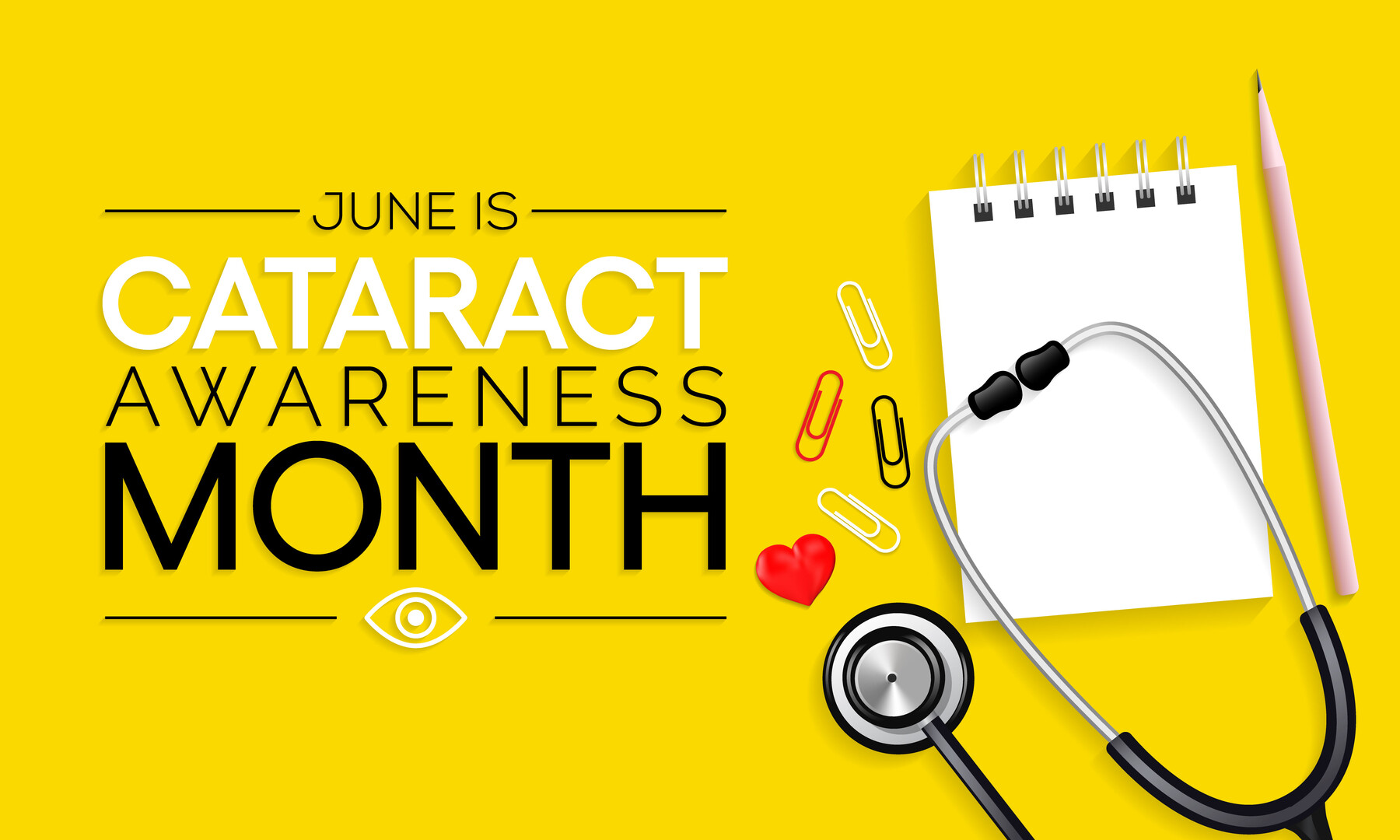Seeing Clearly Ahead
~ by Carol Vartuli
Most people associate the term 'cataract' with an eye condition in older people. That's because, according to the National Eye Institute, more than half of all Americans over age 80 have cataracts, or have had surgery to remove them.
Unless you have had one, you may not know exactly what cataracts are, or why they develop. You can have a cataract at age 50, or younger. June is Cataract Awareness Month, so it's a good time to look into this common condition.
What Are Cataracts?
The lens in our eye bends light rays, so images can focus on our retina. Like a camera lens, a human lens must be crystal clear to produce sharp, colorful images. Beginning around age 40, normal proteins in our eye's lens start to break down, and that eventually leads to clouding.
This may take many years, but once the lens becomes clouded, it's like a dirty window. Vision becomes blurry; colors may look faded. You can’t see well at night. Lamps, sunlight, or headlights seem too bright. You may see a halo around lights. You see double. You have to change the prescription for your glasses often.
Other Causes of Cataracts
Although aging is the most common cause of cataracts, other factors can contribute to their development, including hereditary and physical traits, and lifestyle habits, such as:
- Having a family history of cataracts
- Having diabetes, smoking cigarettes, or drinking too much alcohol
- Having had eye injuries, eye surgery, or radiation treatment to the upper body
- Having spent a lot of time in the sun
- Taking steroid medications to treat problems like arthritis
Can Cataracts Be Prevented?
Cataracts cannot be totally prevented, but cataract development can be delayed by protecting your eyes by taking the following precautions:
- Wear sunglasses and a hat with a brim to block the sun.
- Quit smoking. Call 1-800-QUIT-NOW (1-800-784-8669) for free support.
- Eat healthy, with plenty of fruits and vegetables, and dark, leafy greens like spinach, kale, and collard greens
- Get a dilated eye exam. If you're over 60, get one at least every two years.
Treatment and Surgery
You may develop a cataract (or two) at some point. While surgery is the only way to 'cure' cataracts, you probably won't need surgery immediately. In the early stages, you can manage your cataract by using brighter light at home and at work, wearing anti-glare sunglasses, and using magnifying aids for reading and other activities. New eyeglass prescriptions will also help.
Surgery is indicated when a cataract impedes everyday activities, like driving, reading, and watching TV. According to Healthgrades, cataract surgery is the most common surgery in the United States, and it's highly successful.
During surgery, the doctor removes the affected lens and replaces it with an artificial (interocular or IOL) lens. The surgery results in improved vision for 9 out of 10 patients. In fact, if you are near-sighted, the artificial lens can carry a prescription to correct your vision and you won't need eyeglasses for distance vision.
If you start noticing changes in your vision, see an ophthalmologist who can determine whether you have an early cataract, and help you manage it.
You can find detailed information about cataracts and their treatment and surgery options at the American Academy of Ophthalmology website. Looking ahead might be a good idea.
The information in the above article is not intended nor implied to be a substitute for professional medical advice, diagnosis, or treatment. Always seek the advice of your physician or other qualified health provider with any questions you may have regarding a medical condition.
